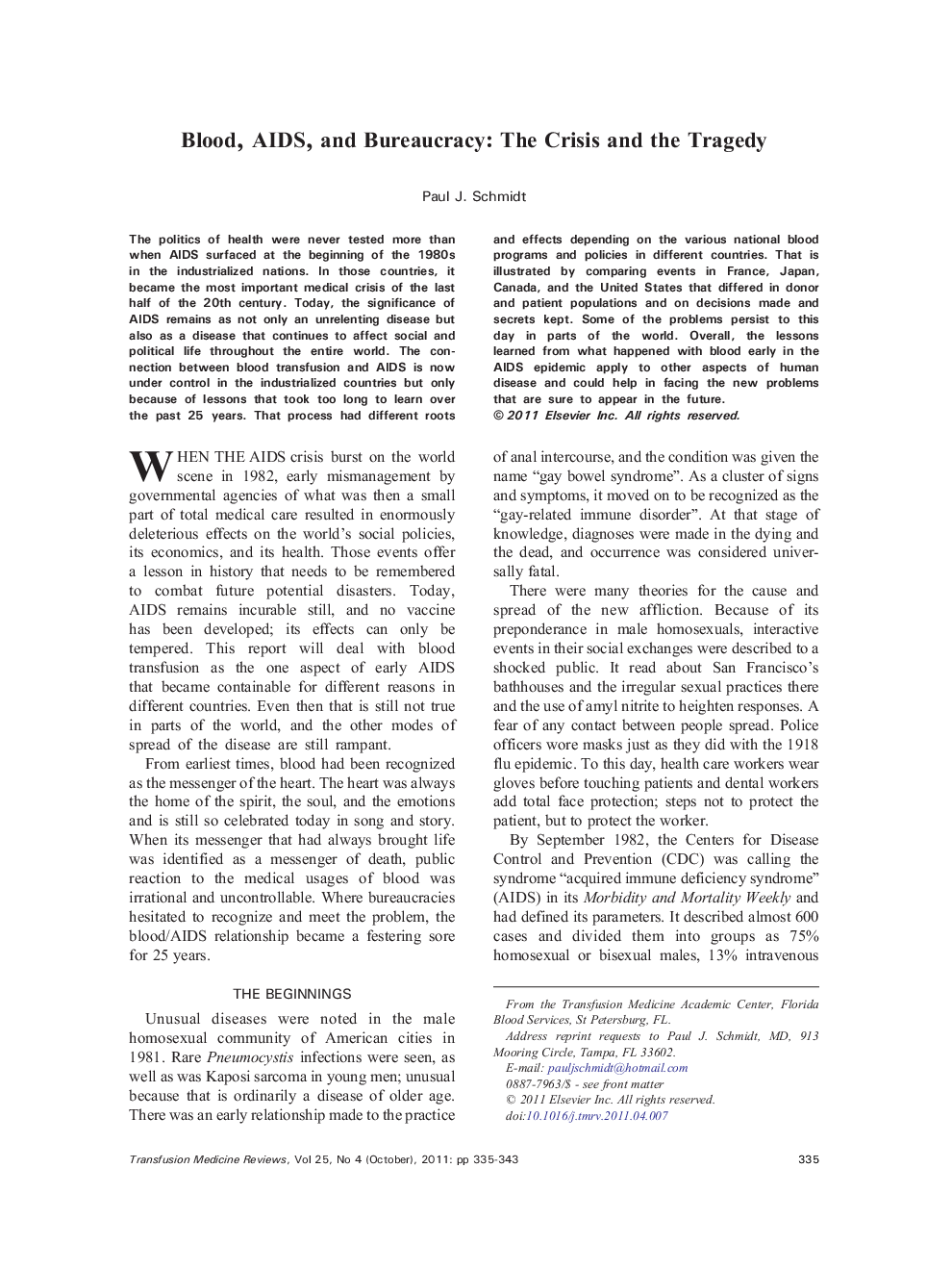| کد مقاله | کد نشریه | سال انتشار | مقاله انگلیسی | نسخه تمام متن |
|---|---|---|---|---|
| 3336674 | 1213620 | 2011 | 9 صفحه PDF | دانلود رایگان |

The politics of health were never tested more than when AIDS surfaced at the beginning of the 1980s in the industrialized nations. In those countries, it became the most important medical crisis of the last half of the 20th century. Today, the significance of AIDS remains as not only an unrelenting disease but also as a disease that continues to affect social and political life throughout the entire world. The connection between blood transfusion and AIDS is now under control in the industrialized countries but only because of lessons that took too long to learn over the past 25 years. That process had different roots and effects depending on the various national blood programs and policies in different countries. That is illustrated by comparing events in France, Japan, Canada, and the United States that differed in donor and patient populations and on decisions made and secrets kept. Some of the problems persist to this day in parts of the world. Overall, the lessons learned from what happened with blood early in the AIDS epidemic apply to other aspects of human disease and could help in facing the new problems that are sure to appear in the future.
Journal: Transfusion Medicine Reviews - Volume 25, Issue 4, October 2011, Pages 335–343